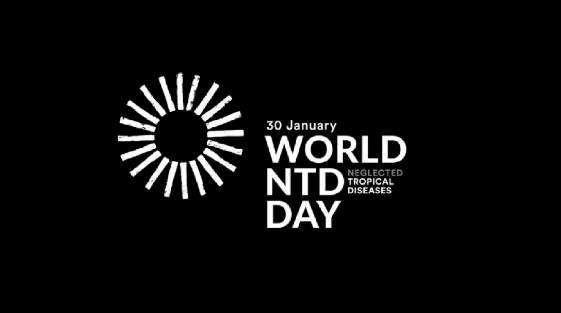World Neglected Tropical Diseases Day 2023 – January 30
World Neglected Tropical Disease (NTD) Day is observed today, on January 30 of each year, and in recognition of this, WHO has released a new progress report titled “Global report on neglected tropical diseases 2023” that highlights the advancements and difficulties in the provision of NTD care globally against the backdrop of COVID-19-related disruptions.
NTDs are a heterogeneous collection of 20 illnesses that are primarily found in tropical regions. Numerous pathogens, including viruses, bacteria, parasites, fungus, and toxins, are responsible for NTDs. Even when these diseases are not fatal, they can result in lifelong social shame and subsequent economic hardship. These diseases have terrible health, social, and economic effects.
NTDs include the following: Buruli ulcer, Chagas disease, dengue and chikungunya, dracunculiasis, echinococcosis, foodborne trematodiases, human African trypanosomiasis, leishmaniasis, leprosy, lymphatic filariasis, onchocerciasis, rabies, scabies and other ectoparasitoses, schistos
NTDs continue to disproportionately affect the world’s poorest people, especially in places with insufficient access to health care, safe drinking water, and sanitation. Despite the fact that at least one case of NTDs was reported in as many as 179 nations and territories in 2021, 16 countries accounted for 80% of the worldwide NTD burden. Globally, it was anticipated that 1.65 billion people needed treatment for at least one NTD.
According to the latest progress report, fewer than 80 million people needed NTD interventions between 2020 and 2021, and eight nations were certified or confirmed as having wiped out one NTD in 2022 alone. By the end of 2022, at least one NTD had been eradicated in 47 nations, and more were on track to do the same.
Progress made in 2021–2022 builds on a decade of notable advancement. More than one billion individuals were treated for NTDs annually between 2016 and 2019 thanks to mass treatment initiatives, and in 2021 25% fewer people needed interventions against NTDs than in 2010.
According to Dr. Tedros Adhanom Ghebreyesus, WHO Director-General, “millions of people have been freed from the weight of neglected tropical diseases, which keep people stuck in cycles of poverty and stigma.” But as this report on our accomplishments demonstrates, there is still much to be done. The good news is that we have the resources and expertise to not only save lives and end suffering, but also to rid entire nations and communities of debilitating illnesses. It’s time to invest in NTDs right now by working together.
The research also highlights the tremendous effects COVID-19 had on community-based initiatives, access to healthcare facilities, and healthcare goods supply chains. In spite of the fact that a general restart of activities allowed for an 11% increase in recovery in 2021, when almost 900 million individuals were treated, this resulted in 34% fewer persons receiving treatment for NTDs between 2019 and 2020.
Act now. Act together. Invest in neglected tropical diseases
The updated report places an emphasis on the increased efforts and resources needed to accelerate progress toward the NTD Road Map targets by 2030 and reverse delays. The NTD road map goals must be achieved in order for countries to fulfill their pledges to offer top-notch NTD services to affected populations. This can only be done by encouraging country ownership and accountability as well as the sustainability and predictability of financing, including more robust domestic funding.
Collaboration and collaborations across sectors are essential to achieving this. Last Monday, WHO and Gilead Sciences extended their existing agreement through 2025 by signing a new one for the gift of 304 700 vials of AmBisome (liposomal amphotericin B for injection) for the treatment of visceral leishmaniasis in nations severely affected by the illness. The cost of the new, three-year agreement is estimated at $11.3 million, and it includes funding for WHO.
WHO calls on additional partners and donors to step up and close the gaps preventing the full-scale implementation of NTD actions at the international and local levels. The Carter Center’s entry into official ties with WHO will be up for discussion during the 152nd session of the WHO Executive Board later this week.
Over 100 scientific guidelines, tools, and other information products were produced as a result of WHO’s NTD efforts in 2021 and 2022 to support the international NTD community, particularly underdeveloped nations. The Open WHO platform launched an NTD channel with 36 training courses on 19 different topics for healthcare professionals. The WHO is persistently working to ensure equity and respect for human rights in all NTD service delivery while continuing to assess and approve novel medications to treat neglected tropical diseases.
During World NTD Day, the message “Act now. Act as a team. Invest in neglected tropical diseases,” WHO is urging everyone, especially leaders and communities, to address the disparities that fuel NTDs and to make audacious, long-term investments to break the cycle of disease and poverty that plagues the world’s most vulnerable communities.




